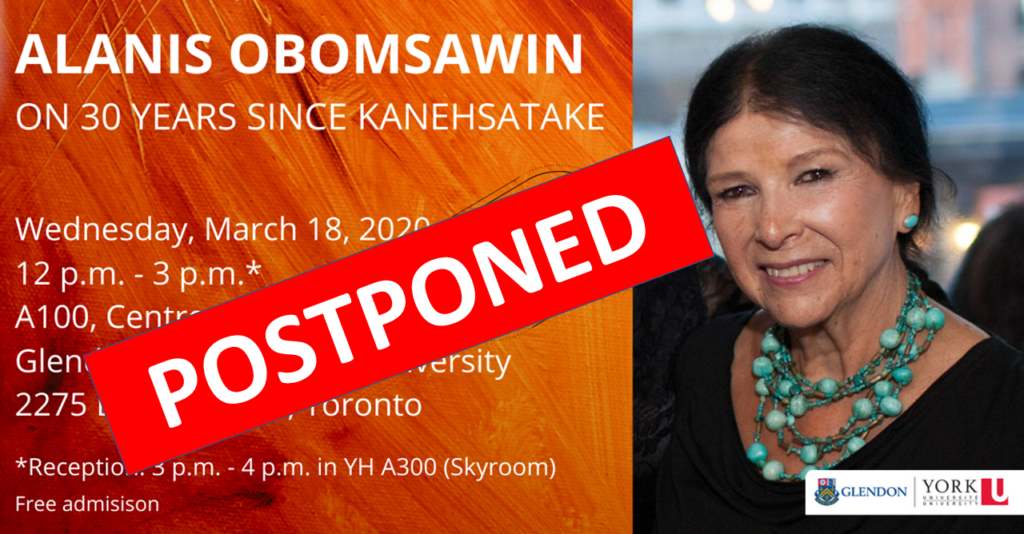Calendar
The Canadian Language Museum presents an exhibit about Cree, the most widely spoken Canadian Aboriginal language. Six colourful panels present maps, photos and information on topics including the syllabic writing system, word formation, animacy, and the future of Cree. There are also audio clips of Cree dialects from across Canada.
If you would like information about hosting this traveling exhibit, please contact exhibits@languagemuseum.ca
The Canadian Language Museum presents an exhibit about Cree, the most widely spoken Canadian Aboriginal language. Six colourful panels present maps, photos and information on topics including the syllabic writing system, word formation, animacy, and the future of Cree. There are also audio clips of Cree dialects from across Canada.
If you would like information about hosting this traveling exhibit, please contact exhibits@languagemuseum.ca
The Canadian Language Museum presents an exhibit about Cree, the most widely spoken Canadian Aboriginal language. Six colourful panels present maps, photos and information on topics including the syllabic writing system, word formation, animacy, and the future of Cree. There are also audio clips of Cree dialects from across Canada.
If you would like information about hosting this traveling exhibit, please contact exhibits@languagemuseum.ca
Isabelle St-Amand, professor at Queen’s University, will be joining us to about her research on the Oka crisis and its filmic and literary representations (see her book book here https://www.pulaval.com/produit/la-crise – d-oka-en-recits-territory-cinema-et-litterature and https://uofmpress.ca/books/detail/stories-of-oka)
A guest lecture by Nadya Kwandibens, founder of Red Works Photography along with a photo exhibit by the students of SOCI 2630. Red Works is a dynamic photography company empowering contemporary Indigenous lifestyles and cultures through photographic essays, features, and portraits. The lecture will be followed by a reception.
The John W. Holmes Memorial Lecture welcomes Prof. Cindy Blackstock of the McGill University’s School of Social Work and Executive Director of the First Nations Child and Family Caring Society of Canada. Her lecture will focus on global trends in indigenization and how to promote indigenization globally.
Biography
Cindy Blackstock, PhD
A member of the Gitxsan First Nation, Cindy is honoured to serve as the Executive Director of the First Nations Child and Family Caring Society and a professor at McGill University’s School of Social Work. She has over 30 years of experience working in child welfare and Indigenous children’s rights and has published more than 75 articles on topics relating to reconciliation, Indigenous theory, First Nations child welfare and human rights. Cindy was honoured to work with First Nations colleagues on a successful human rights challenge to Canada’s inequitable provision of child and family services and failure to implement Jordan’s Principle. This hard-fought litigation has resulted in hundreds of thousands of services being provided to First Nations children, youth and families.
She recently served on the Pan American Health Commission on Health Equity and Inequity and fundamentally believes that culturally-based equity is fundamental to meaningful reconciliation. Cindy is frequently sighted in the company of the Caring Society’s reconciliation Am-bear-rister, Spirit Bear, engaging children in meaningful actions to implement the TRC Calls to Action.
Please register here.
The event has been postponed.
Slamer, actress, innu/québécoise activist
POSTPONED
It is impossible to address contact literature in New France without dealing with the question of indigenous languages, the learning of which, an essential necessity for missionaries, adventurers and traders alike, presented many challenges. Paul Lejeune, Gabriel Sagard, Marie de l’Incarnation, to name a few, highlighted the difficulties they faced in mastering the country’s idioms. Their writings, like those of many of their contemporaries, are dotted with Native American expressions and terms which aim sometimes to accredit their testimonies, sometimes to reflect the linguistic reality of the Other, sometimes to reproduce an untranslatable local reality in French , sometimes to demonstrate a linguistic competence sometimes inflated for propaganda purposes. However, whatever the motivations of the authors, the Native American terms, unique traces of real or manufactured interethnic exchanges, cause problems of interpretation due to transcription errors, dialect variations from one clan to another, the rudimentary understanding or the deficient ear of the Europeans, even the deceit of the interpreters through whom the conversations were often reported. To all these pitfalls was added the imperfection of dictionaries and small vocabularies made available to travelers of the time.
The projected workshop is intended to be a research laboratory to explore avenues of reading and to raise questions about the meaning and the use of Native American xenisms in a vast corpus made up of travel or stay relationships, correspondences, missionary chronicles, diplomatic speeches, as well as bilingual lexicons and repertoires of sentences or prayers.
Please submit your intervention proposals in French or English to Marie-Christine Pioffet (mpioffet@yorku.ca) and Sylvie Rosienski-Pellerin (rosienski@glendon.yorku.ca) before February 1, 2020.
